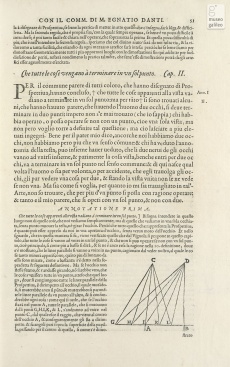Door by Don Gerolamo da Perugia
From Inventions
| Line 1: | Line 1: | ||
{{Template invention | {{Template invention | ||
| - | |nome= Name adopted by Egnazio Danti in reference to Albrecht Dürer’s [[window]]. | + | |nome= Name adopted by Egnazio Danti in reference to Albrecht Dürer’s [[Door |window]]. |
|inventore= Don Girolamo da Perugia | |inventore= Don Girolamo da Perugia | ||
| Line 7: | Line 7: | ||
|data= ca. 1580 | |data= ca. 1580 | ||
| - | |descrizione= Variant of Albrecht Dürer’s [[window]] described by Egnazio Danti in his commentaries to Vignola’s Le ''due regole'' [The two rules] and attributed to Don Girolamo da Perugia, Abbot of Lerino. Unlike its model, in which the points observed were fixed by two intersecting strings, this “window” determined the intersections of the visual ray by means of two small rods hinged to the ends of a board. The “window” with a sheet of drawing paper is hinged to the side of the board carrying the two rods. Keeping his eye on the sight, the painter looks at a point on the object to be drawn and positions the two rods to intersect at this point. He then raises the “window” and traces the intersection point on the drawing paper. This operation is then repeated for all of the significant points on the object. | + | |descrizione= Variant of Albrecht Dürer’s [[Door |window]] described by Egnazio Danti in his commentaries to Vignola’s Le ''due regole'' [The two rules] and attributed to Don Girolamo da Perugia, Abbot of Lerino. Unlike its model, in which the points observed were fixed by two intersecting strings, this “window” determined the intersections of the visual ray by means of two small rods hinged to the ends of a board. The “window” with a sheet of drawing paper is hinged to the side of the board carrying the two rods. Keeping his eye on the sight, the painter looks at a point on the object to be drawn and positions the two rods to intersect at this point. He then raises the “window” and traces the intersection point on the drawing paper. This operation is then repeated for all of the significant points on the object. |
Current revision as of 12:12, 27 July 2010
Name adopted by Egnazio Danti in reference to Albrecht Dürer’s window.
Contents |
Inventor
Don Girolamo da Perugia
Historic Period
ca. 1580
Description
Variant of Albrecht Dürer’s window described by Egnazio Danti in his commentaries to Vignola’s Le due regole [The two rules] and attributed to Don Girolamo da Perugia, Abbot of Lerino. Unlike its model, in which the points observed were fixed by two intersecting strings, this “window” determined the intersections of the visual ray by means of two small rods hinged to the ends of a board. The “window” with a sheet of drawing paper is hinged to the side of the board carrying the two rods. Keeping his eye on the sight, the painter looks at a point on the object to be drawn and positions the two rods to intersect at this point. He then raises the “window” and traces the intersection point on the drawing paper. This operation is then repeated for all of the significant points on the object.
Bibliographical Resources
Vignola, Giacomo Barozzi detto il. Le due regole della prospettiva pratica. Con i comentarij del R.P.M. Egnatio Danti. In Roma, per Francesco Zannetti, 1583, p. 57.
Images
Author of the entry: Filippo Camerota

